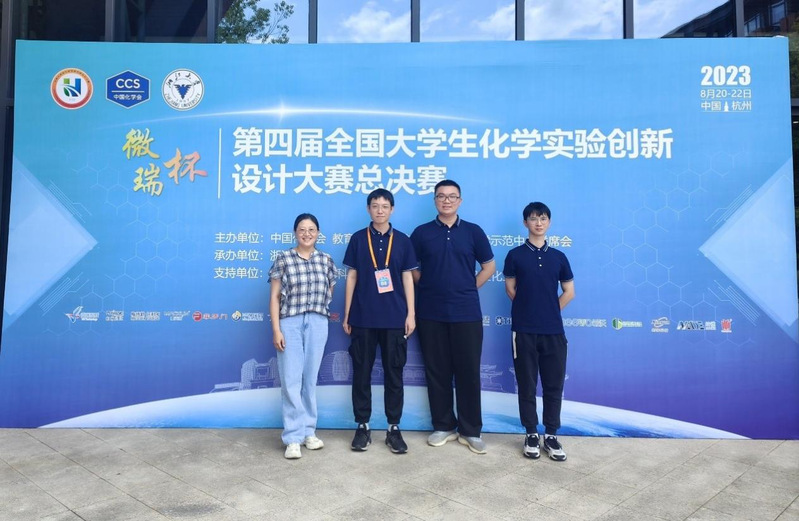NKU Students Won Grand Prize at the 4th National College Students Chemical Experiment Innovation Design Competition

Recently, the finals of the 4th National College Students Chemical Experiment Innovation Design Competition took place at Zhejiang University. The project “In situ Raman spectroscopy for exploring the photodegradation mechanism and kinetics of photosensitive substances” completed by undergraduates Wang Ruqi, Tang Jianqi and Yu Zecong under the guidance of Wang Jing, a teacher of the College of Chemistry, Nankai University, won the grand prize. This is the fourth consecutive year that Nankai University students won the grand prize in this competition.
The competition, which lasted over three months, drew 1,076 teams from 447 colleges and universities. It consists of three areas: innovative experiment, improvement experiment, and popular science experiment. 90 teams entered the national finals after fierce competition in seven regional divisions. 18 grand prizes, 32 first prizes and 40 second prizes were awarded as a result of the written evaluation of works and on-site defense.
The Nankai University team introduced advanced in situ Raman detection technique to undergraduate experimental teaching in conjunction with the cutting-edge research on photoreaction catalytic degradation. Kinetic analysis was performed through changes in the intensity of Raman peak, the reactive sites were determined, and the reaction mechanism was discussed. At the same time, the photodegradation kinetics under the catalysis of different photocatalysts were detected, providing a quick and easy method for evaluating the photocatalytic efficiency of catalysts. This experiment innovatively employs the laser light source of Raman spectrometer for photodegradation reaction, without the need to retrofit experimental equipment. It is suitable for undergraduate experimental teaching for its ease of use, short reaction time, low cost and high reproducibility. This experimental project integrates knowledge on Raman spectroscopy testing, catalytic reactions, kinetics, data processing and others. It increases students’ understanding of in situ representation, and guides students to flexibly use what they have learned to solve complex problems, adopt scientific methods, and develop scientific thinking.
(Edited and translated by Nankai News Team.)









